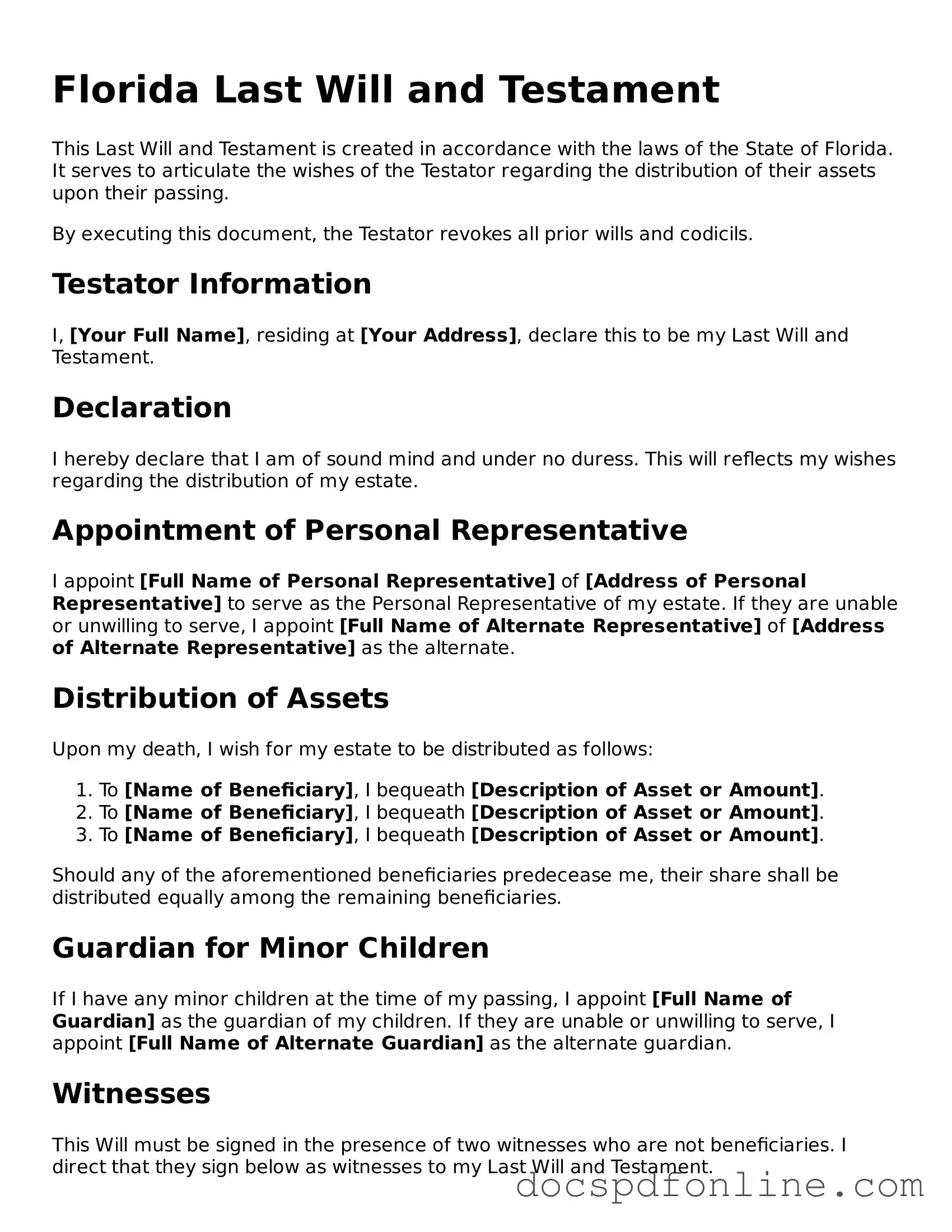Legal Last Will and Testament Template for Florida
A Florida Last Will and Testament form is a legal document that outlines an individual's wishes regarding the distribution of their assets after death. This form ensures that your intentions are honored and provides clarity for your loved ones during a difficult time. Understanding how to properly complete and execute this document is essential for anyone looking to secure their legacy in Florida.
Launch Editor Now

Legal Last Will and Testament Template for Florida
Launch Editor Now
Save time — finish this form fast
Finish Last Will and Testament online — edit, save, download made easy.
Launch Editor Now
or
↓ PDF File
